
OR
Why didn’t Indian PM Modi meet Nepali Foreign Minister Gyawali in New Delhi?
Published On: January 17, 2021 01:37 PM NPT By: Santosh Ghimire | @journonepali
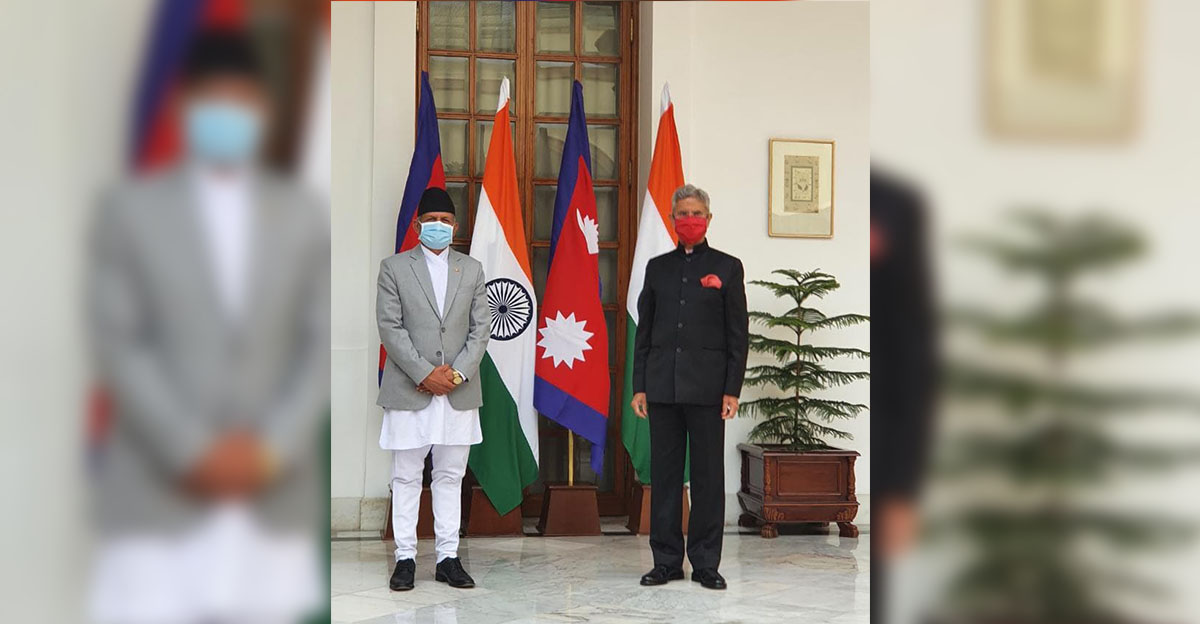
KATHMANDU, Jan 17: As Foreign Minister Pradeep Kumar Gyawali returned home completing his three-day India visit on Saturday afternoon, foreign relations experts in Kathmandu and New Delhi, have, citing Gyawali's failure to meet Indian Prime Minister Narendra Modi during the visit, said Nepal-India relations were far from coming back to normal.
Commenting on Gyawali's visit, Dr Prakash Chandra Lohani, a former foreign minister of Nepal, wrote on Twitter "It’s a matter of breach of even the basic diplomatic protocol when the Indian Prime Minister does not meet visiting foreign minister of a friendly country like Nepal even though he was formally invited by India for the visit. Why did it happen? Both Nepal and India should ponder."
Gyawali, who visited India from January 14 to 17 at the invitation of his Indian counterpart S Jaishankar, to attend the sixth Nepal-India Joint Commission meeting, failed to hold a meeting with Modi. However, Gyawali met Indian Defense Minister Rajnath Singh just before his departure to Kathmandu.
Bishnu Rijal, a leader of the ruling Nepal Communist Party (Dahal-Nepal faction), also pointed at the failure of Gyawali to meet Modi in India.
"The Indian foreign secretary held meetings with our president, prime minister, foreign minister and the opposition party leader when he visited Nepal. But, our foreign minister returned home even without holding a meeting with the Indian prime minister. The meeting should have taken place at least for public consumption," he wrote on Twitter.
Sources at the Nepal Embassy in New Delhi said that their effort to fix a meeting between Foreign Minister Gyawali and Indian PM Modi could not succeed until Gyawali's stay in the Indian capital. They said they had requested the Indian side for a meeting with Modi, and hoped it would be arranged, given that Nepal Prime Minister KP Sharma Oli had granted meetings to Indian Foreign Secretary Harsh Shringla, Indian Army Chief General Manoj Naravane, and spy agency chief Samant Goel when they visited Kathmandu on separate occasions last year. However, efforts by the Nepali side to meet Modi went in vain as the Indian authorities cited Modi's hectic schedule throughout Saturday.
Meanwhile, former Indian ambassador to Nepal, Rakesh Sood has said that Prime Minister Modi’s decision not to meet the Nepali foreign minister was a signal that despite a thaw in ties, all is not well between New Delhi and Kathmandu yet, given Nepal's refusal to reconsider its new map.
“I think the fact that there was no call on the Prime Minister [Modi] during Mr Gyawali’s visit is a message to the Oli government that India is still looking for more signs of flexibility, and that it isn’t all hunky-dory,” Mr. Sood has been quoted by India's The Hindu newspaper as saying.
Gyawali’s visit had been seen as a message that India is willing to deal with the Oli government despite tensions, and even though it is a caretaker government after Oli dissolved parliament and declared fresh elections, the newspaper further wrote.
"New Delhi has also been careful not to comment on the political turmoil the decision caused, and the split in the ruling Nepal Communist Party between Mr Oli’s faction and that led by former Prime Minister Prachanda and Madhav Nepal, in contrast to the active role played by Beijing, who even sent a high-level delegation of the Chinese Communist Party to try and resolve the rift, unsuccessfully," the newspaper commented.
You May Like This

Nepal-India Joint Commission meeting begins in New Delhi
KATHMANDU, Jan 15: A meeting of the Nepal-India Joint Commission began in New Delhi on Friday morning. ... Read More...
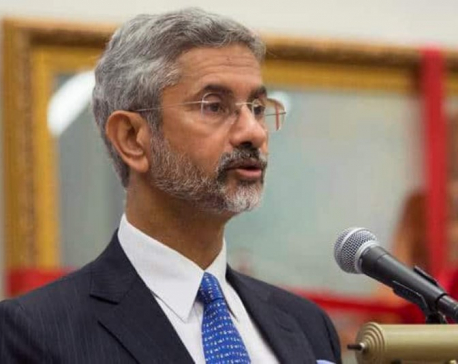
India and Nepal have decided to move ahead, says Indian External Affairs Minister
KATHMANDU, Dec 3: India's External Affairs Minister S. Jaishankar on Thursday argued that India and Nepal have decided "to move... Read More...
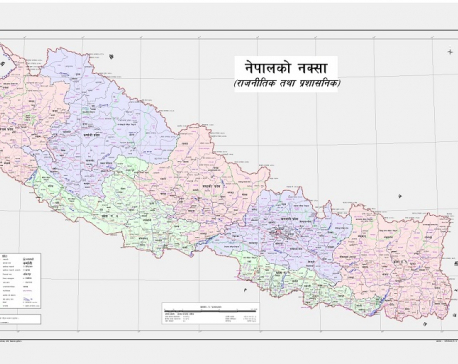
Expert panel submits report on disputed border region with India to FM Gyawali
KATHMANDU, Oct 5: An expert panel formed by the government to gather historical evidences that support its claim that Kalapani,... Read More...
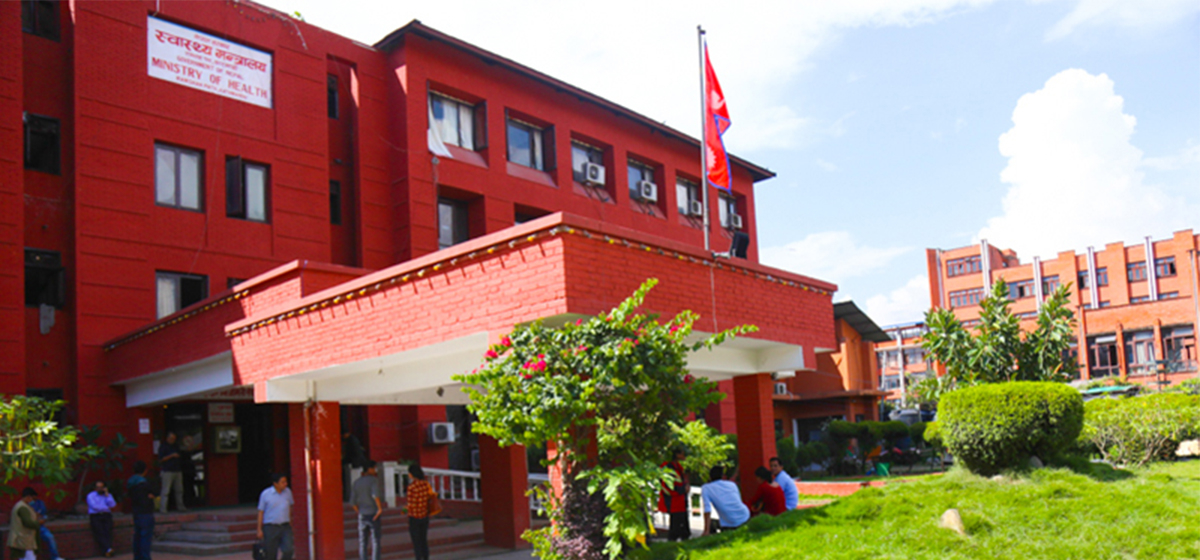
Just In
- Health ministry warns of taking action against individuals circulating misleading advertisements about health insurance
- UAE secures spot in ACC Premier Cup final, defeating Nepal by six wickets
- NC to boycott Gandaki Province Assembly, submits letter to Speaker
- 850 grams of gold seized from Indian national at TIA
- Rupandehi District Court orders to release Dipesh Pun on a bail of Rs 400,000
- Teachers’ union challenges Education Minister Shrestha's policy on political affiliation
- Nepal sets target of 120 runs for UAE in ACC Premier Cup
- Discussion on resolution proposed by CPN-UML and Maoist Center begins in Koshi Provincial Assembly



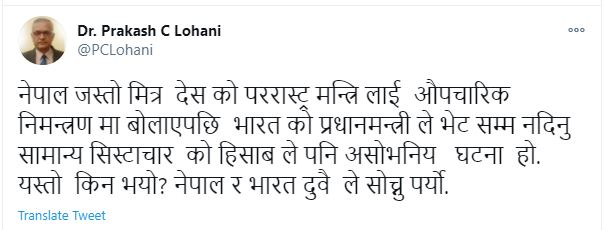
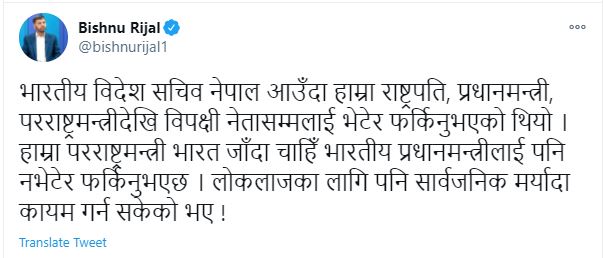







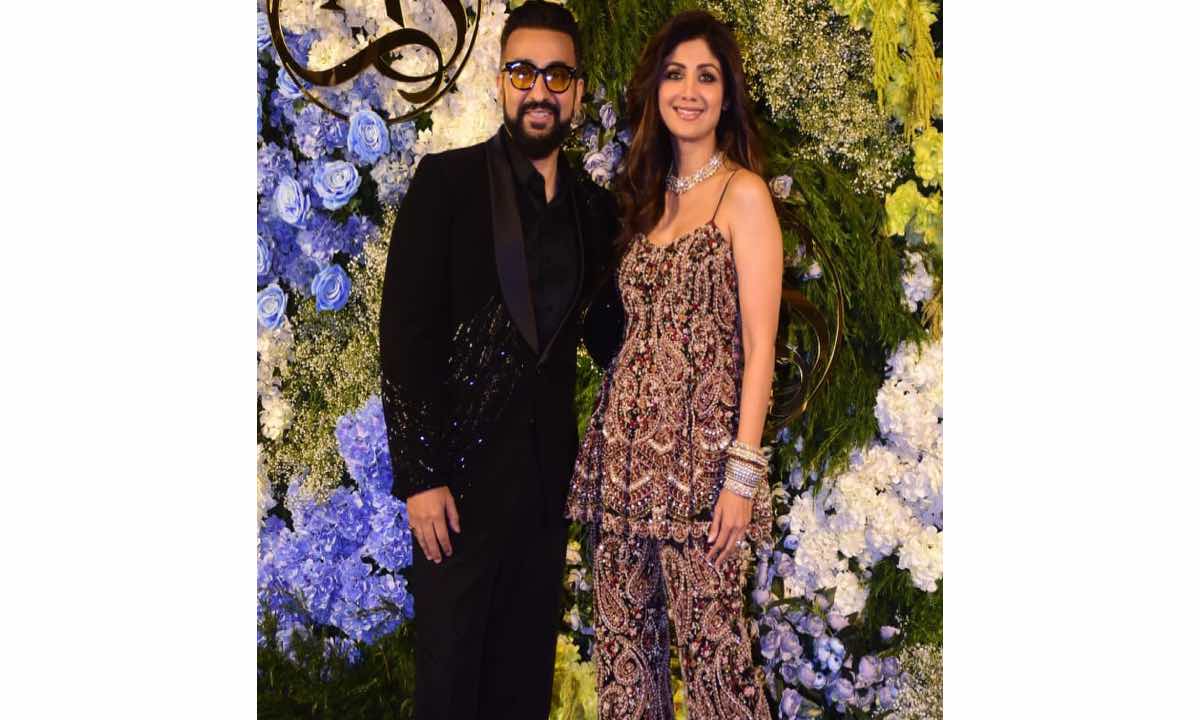
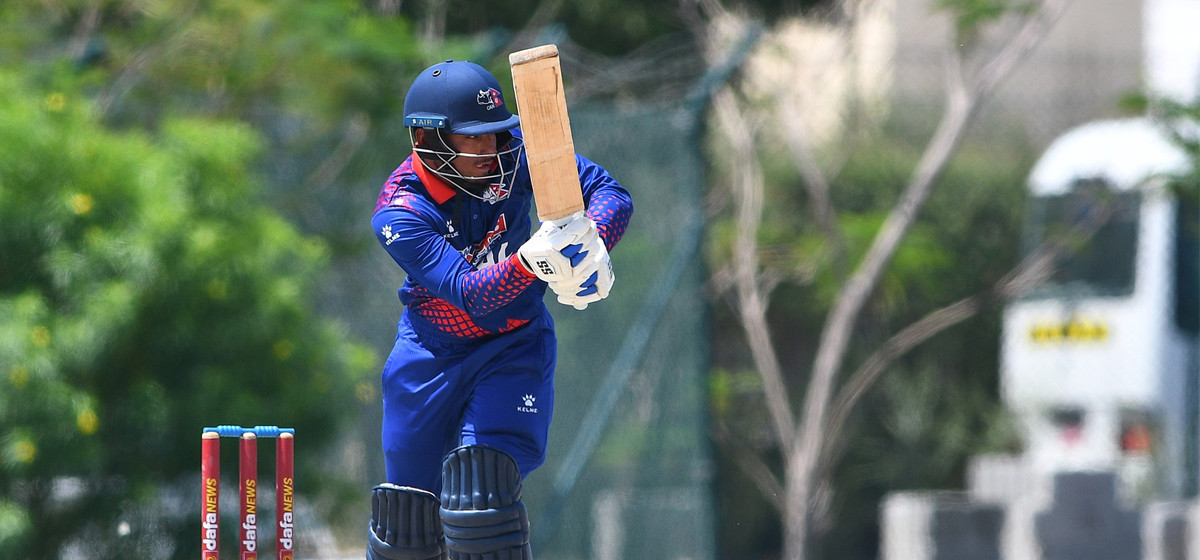
_20240311121839.jpg)


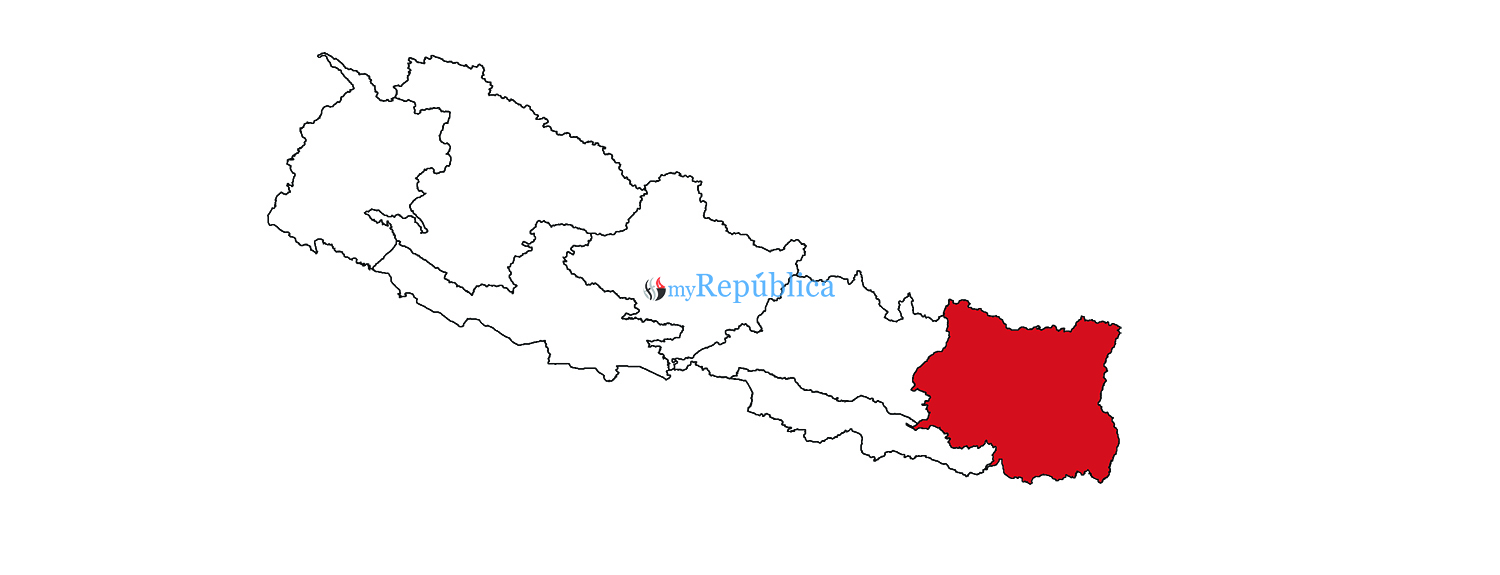
Leave A Comment